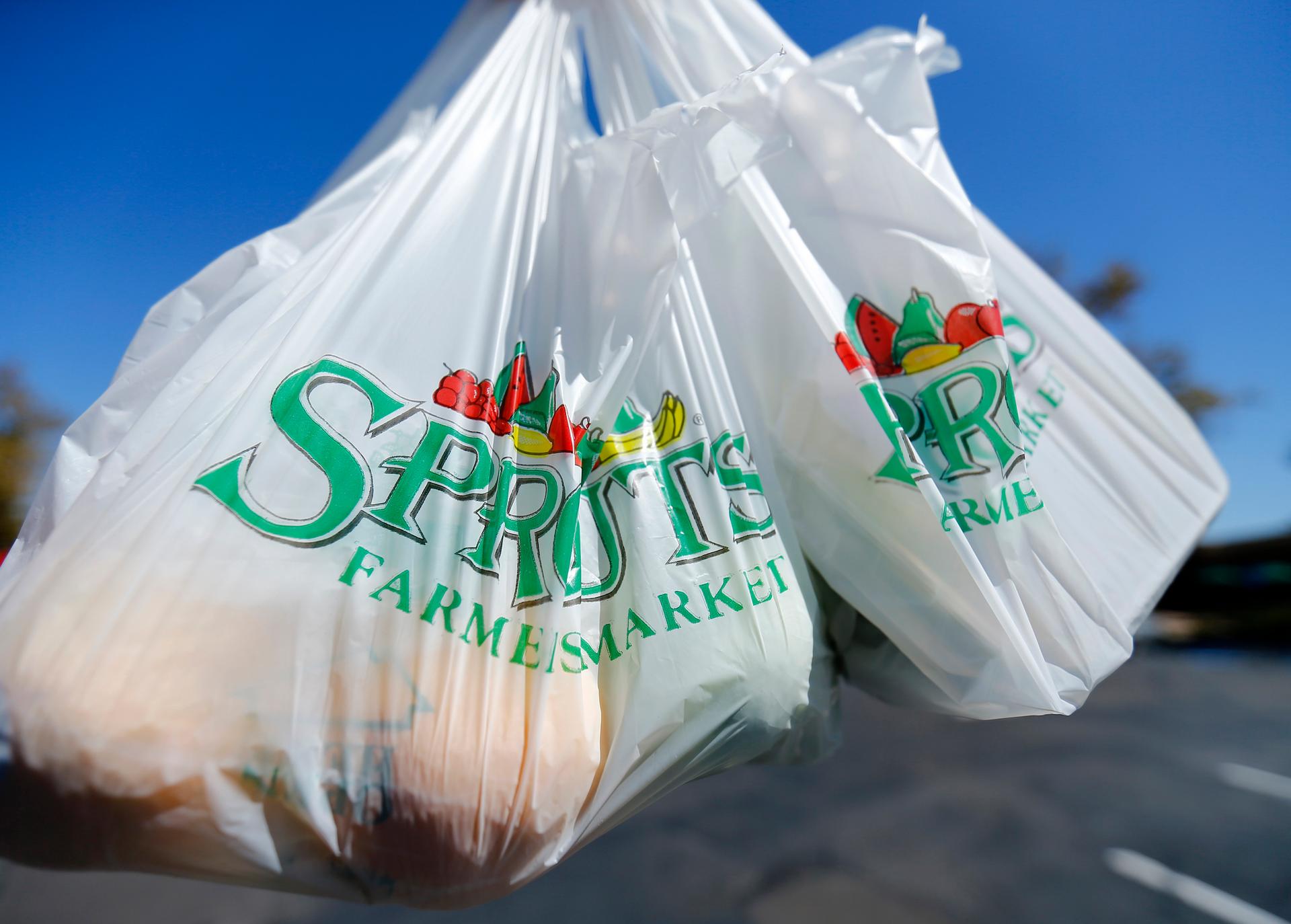California will become the first state to ban plastic bags statewide
Groceries are carried in plastic bags in San Diego, California, September 30, 2014. Single-use plastic bags are set to disappear from California grocery stores over the next two years.
This week, Governor Jerry Brown signed a law that makes California the first state in the nation to ban plastic bags and insist that shoppers use reusable bags, or pay a 10-cent fee for the paper variety.
It's a victory for the environmental movement, but what does it mean for consumers who will no longer be able to request a plastic bag at the check out line? Scott Detrow, Sacramento bureau chief for KQED Public Radio, says the bill is an effort to curb a large source of pollution.
“These [plastic] bags end up in waterways and they end up in the ground,” Detrow says.
The statewide ban, which was already in effect in more than 100 municipalities across the state, signals a huge victory for environmentalists who pushed for the measure for years.
“Up until this year, they had failed over and over and over again,” says Detrow. “They were able to make some key concessions with the business community [and] got this to the governor’s desk”
While some cities across the US, like Chicago, Austin, Seattle and Washington, DC, have instituted outright bans or tax schemes, California is the first to take a plastic bag ban statewide.
But not all are supportive of the plastic bag ban, including industry associations like the American Progressive Bag Alliance (APBA) and others, which vowed to overturn the law shortly after it was signed into law.
“[Opponents] had fought against this measure really hard in the past,” Detrow says.
According to the APBA’s website, plastic bag manufacturers employed at least 30,800 people in 349 communities across the US in 2010.
“One of the concessions to get this to the finish line was a couple million dollars in job training grants that the state will make available so that people who work in these kinds of manufacturing plants making plastic bags out of petroleum offshoots would be able to get job training for other careers,” Detrow says.
Under the new system, shoppers will either have to bring their own reusable bags with them to the checkout counter or pay a 10-cent fee per paper bag.
“Some criticism came up because … that fee doesn’t go to the state or a recycling fund or an environmental cleanup fund like it does in other places like DC,” Detrow adds. “The stores that sell you the product get to keep the revenue for themselves under this system. They’re supposed to use this for job training, but a lot of questions were raised about what exactly they’ll be doing with this money and how much local stores will be profiting off of this bag fee.”
This story first aired as an interview on PRI's The Takeaway, a public radio program that invites you to be part of the American conversation.
